Our Blog
Check out our innovative pump solutions and industry insights to see what's new in the pumping industry. Stay up to date with the latest trends and news in the world of pumping technology by following our pumping technology blog.
- Home
- Blog
Discover How Deep Well Pumps Revolutionize Sustainable Water Solutions in Modern Agriculture
As global water scarcity intensifies, the agricultural sector is under constant pressure to find innovative solutions that ensure the availability of water for sustainable farming practices. Among the technological advancements addressing this challenge is the deep well pump, a game-changer that promises to enhance water accessibility and efficiency in agriculture. This article delves into the profound impact of deep well pumps on modern agricultural practices, highlighting their ability to draw water from significant depths, thereby providing a reliable water source even in arid regions.
With the increasing demand for food production and the need for sustainable water management, deep well pumps have become essential tools for farmers. These systems not only optimize water usage but also support the cultivation of crops in areas previously deemed unsuitable for agriculture. By analyzing the mechanisms behind deep well pumps and their implementation in various farming techniques, we will uncover why they are crucial in revolutionizing sustainable water solutions in modern agriculture. The integration of deep well pumps reflects a commitment to efficiency and sustainability, offering a glimpse into the future of water resource management in an ever-changing climate.
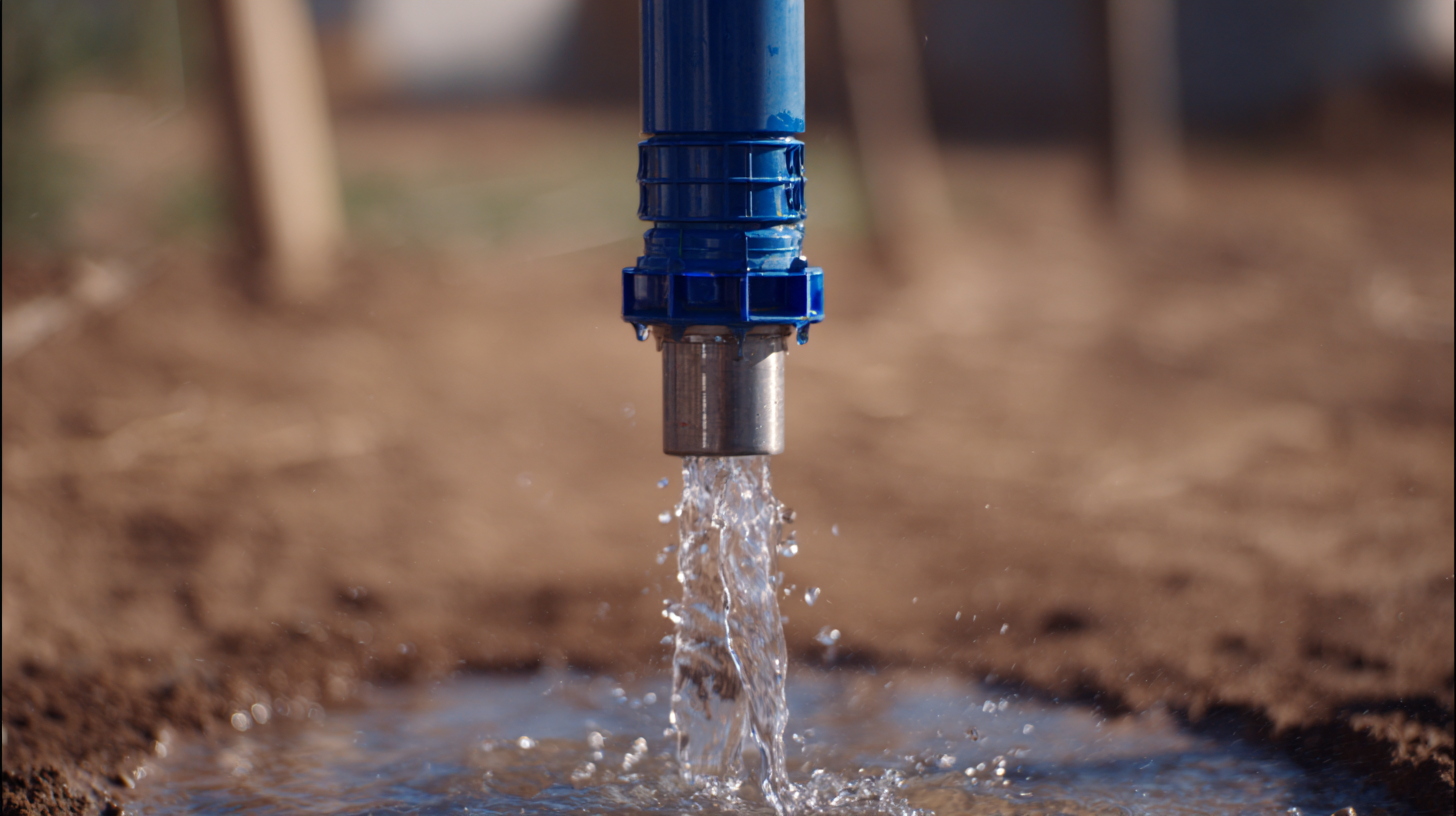
Understanding Deep Well Pumps and Their Role in Water Sustainability
Deep well pumps play a crucial role in sustainable water management within modern agriculture. These innovative systems allow farmers to access groundwater efficiently, ensuring that crops receive the necessary hydration even in times of drought. By drawing water from deeper aquifers, deep well pumps help maintain soil moisture levels, promoting healthier plant growth and maximizing yields. This is particularly important as climate change continues to affect weather patterns and the availability of surface water resources.
Tips for maximizing the effectiveness of deep well pumps include regularly maintaining your pump to ensure optimal performance. Check for any blockages or wear and tear that could impede water flow. Additionally, consider installing a timing system to align water usage with crop needs, reducing waste and conserving resources. Finally, combining deep well pumps with other sustainable practices, such as rainwater harvesting or drip irrigation, can further enhance water efficiency in your agricultural operations.
Understanding the mechanics behind deep well pumps is essential for farmers looking to implement sustainable practices. These pumps operate on a variety of technologies, including submersible and jet pumps, each suited for different soil types and depths. By selecting the appropriate pump for your specific environment, you can ensure a reliable water supply while minimizing energy consumption and environmental impact.
Key Benefits of Deep Well Pumps for Modern Agricultural Practices
Deep well pumps are becoming increasingly vital in modern agriculture, offering a sustainable solution to the pressing water needs of farmers. One of the primary benefits of these pumps is their ability to access groundwater at significant depths, providing a reliable water source even in arid regions. This capability ensures that crops receive adequate hydration, which is crucial for yield optimization and overall plant health. Furthermore, deep well pumps can operate efficiently with minimal energy consumption, making them environmentally friendly and cost-effective.
Another advantage of deep well pumps is their role in promoting water conservation practices. By tapping into deep aquifers, farmers can reduce their reliance on surface water sources, which are often subject to depletion or contamination. This shift not only helps in maintaining the ecological balance but also aids in sustainable farming. Additionally, the consistent supply of water from deep well pumps allows for precise irrigation strategies, fostering improved crop management and resource efficiency. As agriculture continues to evolve, the adoption of deep well pumps is set to play a pivotal role in driving sustainable practices and enhancing food security.
Benefits of Deep Well Pumps in Modern Agriculture
How Deep Well Pumps Increase Water Efficiency and Crop Yield
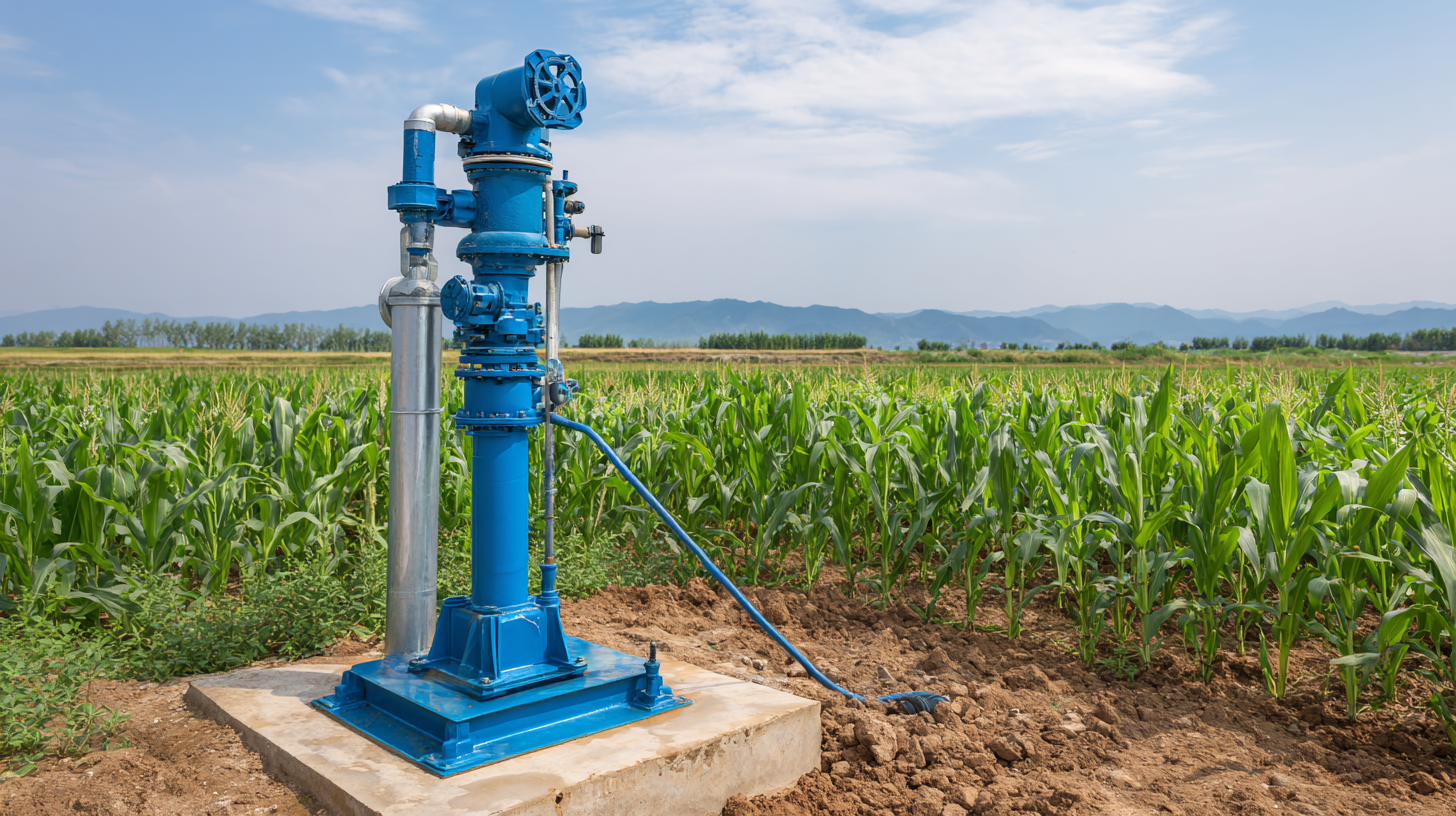 Deep well pumps have become a game-changer in modern agriculture, particularly in enhancing water efficiency and boosting crop yield. By extracting water from deep underground aquifers, these pumps provide a reliable source of irrigation, especially in regions facing water scarcity. This ability to access water at greater depths not only ensures a consistent supply but also minimizes water loss through evaporation and surface runoff, which are common in shallower irrigation methods.
Deep well pumps have become a game-changer in modern agriculture, particularly in enhancing water efficiency and boosting crop yield. By extracting water from deep underground aquifers, these pumps provide a reliable source of irrigation, especially in regions facing water scarcity. This ability to access water at greater depths not only ensures a consistent supply but also minimizes water loss through evaporation and surface runoff, which are common in shallower irrigation methods.
For farmers looking to maximize their water efficiency, investing in deep well pumps can lead to significant improvements in crop yield. The precise control over water delivery enables targeted irrigation, which optimizes soil moisture levels for various crops. Additionally, deep well pumps can be integrated with smart irrigation systems, allowing for real-time monitoring and adjustments based on weather conditions and soil needs.
Tips: When considering deep well pumps, conduct a thorough assessment of your water needs and regional aquifer conditions. Regular maintenance of the pumps is crucial to ensure longevity and efficiency. Lastly, explore potential incentives or subsidies for sustainable farming practices that may include the installation of advanced irrigation systems.
Innovative Technologies in Deep Well Pump Design and Functionality
Deep well pumps have emerged as a game-changer in modern agriculture, particularly in promoting sustainable water solutions. With innovative technologies in their design and functionality, these pumps can now access groundwater reserves more efficiently than ever before. High-efficiency motors and variable frequency drives, for instance, allow for precise control over water flow and can adapt to varying agricultural needs. This not only conserves energy but also reduces the operational costs associated with traditional pumping methods.
**Tip:** When selecting a deep well pump, consider investing in energy-efficient models that offer adjustable speed settings. This ensures you can tailor your water delivery to the changing demands of your crops, optimizing both water use and energy consumption.
Furthermore, advancements in materials and smart monitoring systems have greatly improved the durability and reliability of deep well pumps. Corrosion-resistant materials extend the life of the pumps, while IoT-enabled monitoring systems provide real-time data on pump performance and water levels, allowing farmers to make informed decisions about their irrigation practices.
**Tip:** Implement remote monitoring technology to keep track of your pump's performance. This proactive approach can help you anticipate issues before they escalate, ensuring your irrigation system runs smoothly throughout the growing season.

Implementing Deep Well Pumps: Best Practices for Sustainable Agriculture
Implementing deep well pumps in agriculture significantly enhances water management practices, particularly in regions facing water scarcity. According to the International Water Management Institute, nearly 70% of global freshwater withdrawals are used in agriculture, making efficient water use crucial for sustainable development. Deep well pumps provide a reliable source of water for irrigation, enabling farmers to reach aquifers that might otherwise be inaccessible. This technology not only ensures a consistent water supply but also reduces dependency on surface water resources, which are often subject to seasonal fluctuations.
Best practices for utilizing deep well pumps effectively involve regular maintenance and monitoring to maximize efficiency. A report by the Food and Agriculture Organization highlights that properly maintained pumps can reduce energy consumption by up to 30%, translating to lower operational costs for farmers. Additionally, integrating renewable energy sources such as solar energy with deep well pumps can further minimize environmental impact, promoting sustainability in agricultural practices. Implementing these strategies ensures that deep well pumps serve as a viable solution for sustainable water management in modern agriculture, ultimately contributing to food security and resource conservation.
Related Posts
-
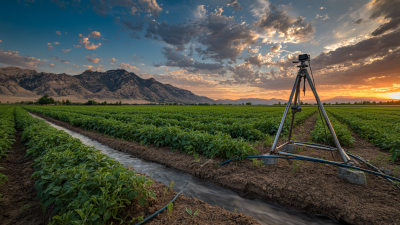
Exploring the Efficiency of Deep Well Pumps in Sustainable Agriculture Practices
-
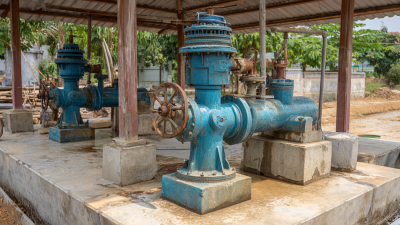
The Ultimate Guide to Choosing the Right Deep Well Water Pump for Your Needs
-
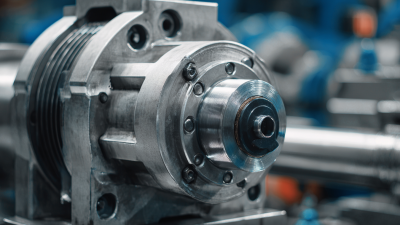
Understanding the Innovations of Pump Manufacturers in Modern Industrial Applications
-
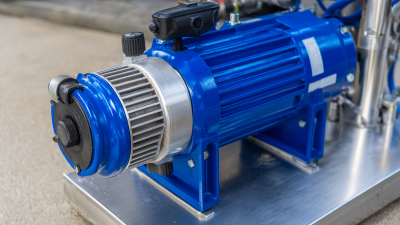
Understanding the Benefits of Using a 1 Hp Well Pump for Efficient Water Supply
-
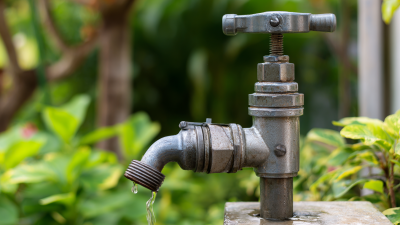
Essential Guide to Choosing the Perfect Well Water Pump for Your Home Needs
-
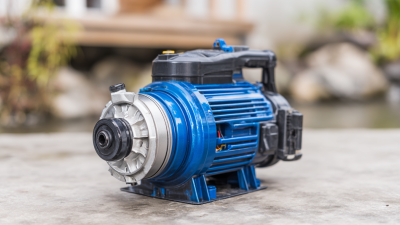
Exploring the Efficiency of Submersible Water Pumps: A Comprehensive Guide for Homeowners

